What do you think when you see a dog wearing a muzzle?
That it must be dangerous? That it could attack at the drop of a hat?
With cases of dog bite injuries quadrupling in Tayside over the last four years, you can understand why fears might abound.
And yet, dogs that wear muzzles do so for a variety of reasons – not necessarily aggression-related.
Muzzles can prevent dangerous scavenging – many dogs like to eat stones, bones, excrement, and potentially toxic items like chocolate, grapes and onions.
And they can offer protection should they lash out, whether through fear or perhaps when they’re in pain during a vet procedure.
How do we break ‘muzzle stigma’?
Many trainers want to break the ‘muzzle stigma’, and believe more needs done to educate people on the benefits of training with the device.
But should muzzles be made mandatory for all dogs in public?
Yes, absolutely, says Dundee-based adult nursing student Dominika, who asked us not to reveal her surname.
Mum-of-two Dominika, 43, feared her seven-year-old Jack Russell would die, following an attack by an American Bully in a shared garden on Fairbairn Street in January.
Her beloved Luna was pinned to the ground, with the Bully’s jaw around her neck.
Luna suffered severe injuries that required £500 worth of vet treatment.
And Dominika claims that was the second time the same dog had attacked her pet.
Why should dogs wear muzzles?
“It’s a very good idea for dogs to be required to wear muzzles in public spaces and shared gardens,” says Dominika.
“I’m originally from Poland, where it’s standard for dogs – especially potentially dangerous breeds – to wear muzzles. As a result, dog attacks are much less common.
“If muzzles were made mandatory, the council and police would have fewer incidents to deal with, and people could feel safer in their communities.”
Dominika says while Luna has recovered well, physically, she’s been left traumatised by the attack, and is afraid to go outside.
She also fears a pair of Pocket Bullies that live nearby, and often run loose, pose a threat to Luna and her children.
“The owners claim they’re not dangerous. I find that irresponsible and untrue,” she adds.
“These dogs are strong and potentially aggressive, and my children are scared to play in our own garden.
“It’s a distressing situation. I now walk my dog in a state of constant anxiety.”
Make muzzles mandatory?
Another person who believes muzzles should be mandatory is Dundee customer services worker Michelle. She, too, prefers not to reveal her surname.
Michelle, in her 50s, is haunted by the traumatic experience of a pack of dogs attacking her five years ago.
“I was walking to the shops on Ballindean Road when three dogs ran at me,” she recalls.
“They had no recall. The pug climbed up my leg and bit me.”
Michelle says her stance on muzzles will never change.
“All dogs should be muzzled in public and all dog owners should have a license to own one.
“I’m tired of people saying ‘my dog is friendly’. Dogs are inherent hunters: they’ve been trained to live with humans.
“They will turn at the drop of a hat if it suits them. Something could p*** them off and they’ll attack.”
Muzzles stop scavenging
Catriona Anderson had a muzzle custom-made for her Patterjack, Finn, after he almost died guzzling a scavenged piece of bone.
“He was on a short lead and under control but still managed to pick this off the ground,” she explains.
“It required two major surgeries and more than a week in the vet school in Edinburgh.
“He now wears a muzzle to prevent him eating anything while he’s out. It’s comfortable and he doesn’t mind it.”
Catriona, who works for NHS Tayside and lives in Strathmartine, Angus, thinks muzzles are brilliant training tools if they’re well-fitted with “pant-room”.
She adds: “You never know when you might need one. I don’t think all dogs should be muzzled whilst out but they should definitely be trained for it.”
What about those against muzzles?
However, quite a few people are 100% anti-muzzle.
Dave Richards, 45, a joiner from Perth, is adamant his Labrador, Moby, would never need one.
“It’s cruel,” he says. “Moby’s the most gentle beast in the world, and I’d hate to see him be forced to wear such a horrible-looking device.
“How would he be able to catch sticks? How could he have a proper drink?
“It’d make him hot and uncomfortable. He’d be utterly miserable.”
Meanwhile, Lorna Riddle of Dundee worries a muzzle could restrict the breathing of flat-faced dogs like pugs.
She adds: “If a dog is trained and kept under control, then no need for a muzzle.”
What are the benefits of muzzle training?
However, dog trainer Hannah Green, who runs Adventure Tails Dundee, believes there are many reasons to muzzle train.
“It often gets a bad rap because people assume only ‘aggressive’ dogs need muzzles, but that’s not the full picture,” says Hannah, 26.
“There are many reasons to muzzle train, including safety in emergencies, preventing scavenging, at vet or grooming visits, legal requirements, or to aid rehabilitation for behavioural issues.”
What does Hannah say to those who think it’s ‘cruel’ to muzzle a dog, if it’s said to be “100%” friendly and non-aggressive?
“That’s a common reaction and totally understandable,” she muses.
“When someone says it’s ‘cruel’ to muzzle a dog that’s friendly and non-aggressive, I’d say it’s actually the opposite.
“Muzzle training is one of the kindest things you can do for your dog. It isn’t about assuming the worst of your dog – it’s about preparing them for if they ever need it.
“Whether it be a one-off high stress situation or for everyday life, if your dog is already comfortable wearing a muzzle they won’t have the added stress if they ever need to wear one.
“And just because a dog is friendly doesn’t mean it’ll never feel scared. Imagine if a dog is hit by a car and needs help.
“Are you going to wait until they bite someone trying to save them, or just calmly slip on a muzzle they’ve already learned to love?
“That’s not cruel – that’s smart and compassionate.”
Promoting ‘muzzle positivity’
Hannah – who’s part of Honest Hounds, an online community that promotes ‘muzzle positivity’ – says it’s sad many people assume muzzled dogs equal bad dogs.
“The perception of muzzles being ‘cruel’ is part of the reason we’re seeing so many dog bites.
“If muzzling was seen as part of daily life, I don’t think we would see as much hesitancy from owners. Some are resistant – for fear of being judged.”
Hannah recommends a basket-style muzzle which allows for panting and drinking.
And of course, she’s trained her four-year-old cockapoo Ollie to happily wear one.
Muzzles ‘keep everyone safe’
Dundee-based behaviourist and dog trainer Jessica Probst believes muzzles are valuable tools when used “responsibly and ethically”.
“They keep everyone safe and aren’t just for dogs that have a bite history – they can help those that scavenge,” she says.
“I believe every dog should be muzzle trained because we never know when we might need to take a dog in pain to the vet.
“They also allow for controlled exposure in rehab cases, where there may be triggering stimuli – and this minimises risk of a bite.”
Jess says many people choose not to muzzle reactive dogs because they think a lead or avoidance is a better option.
However, she says that’s only useful where “luck” is on your side.
“In real life, kids trip over dogs, toddlers wander up and grab fur, and loose young dogs come up to say ‘hi’ and their novice owners think this is ‘socialising’.
“The point is, there are factors in life we can’t account for. But we can prepare in the form of short term safety measures.”
Tayside A&E dog bite cases quadrupled
On April 11, we reported that the number of people attending Ninewells Hospital’s A&E department for dog bite injuries had quadrupled in four years.
Between 2021 and 2024, injuries rocketed from 97 to almost 400.
Our story followed a spate of reported dog attacks on humans and other pets.
In one of the most serious, a teenager was locked up after his Doberman left a toddler in Dundee needing 13 stitches.
Do you think all dogs should be muzzled in public? Let us know in the comments



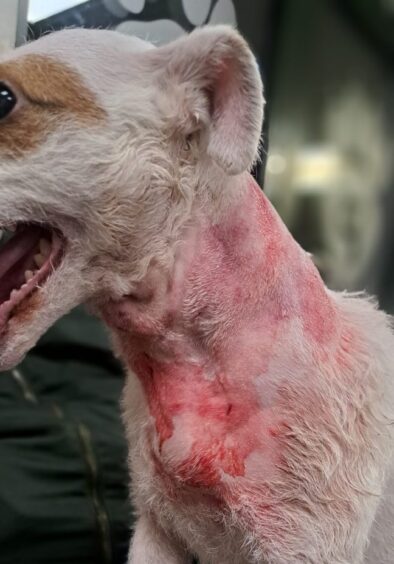
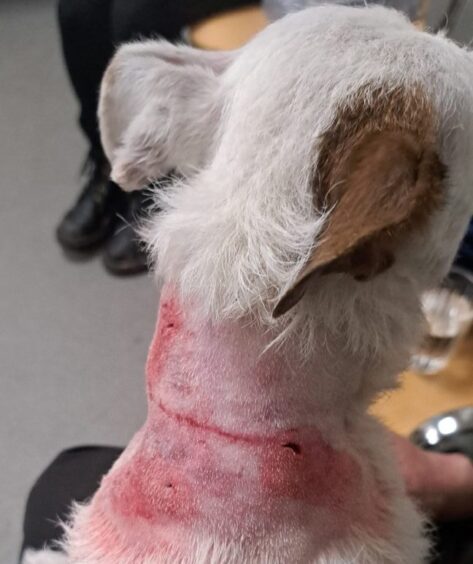



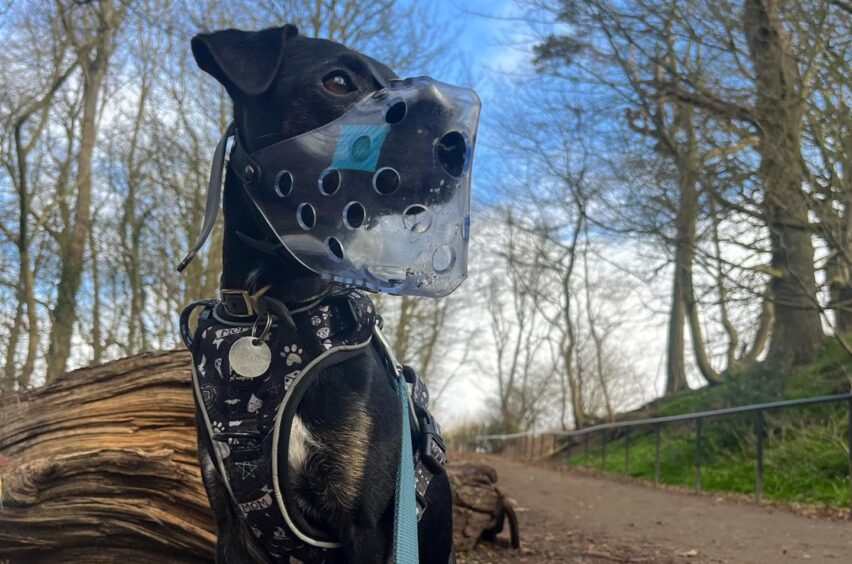


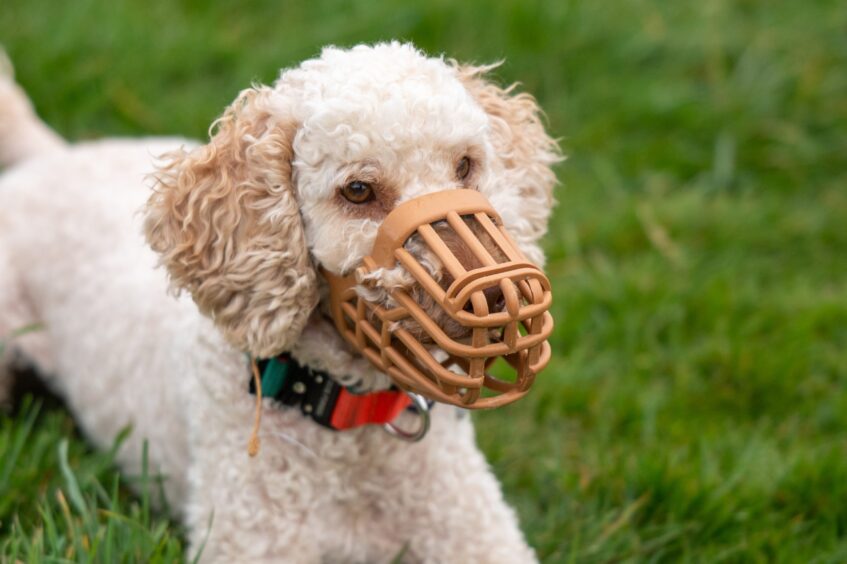
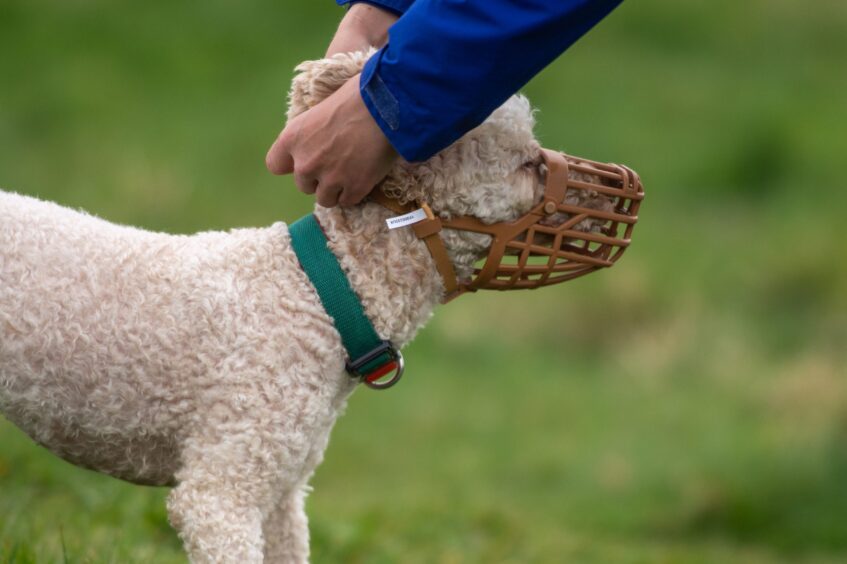

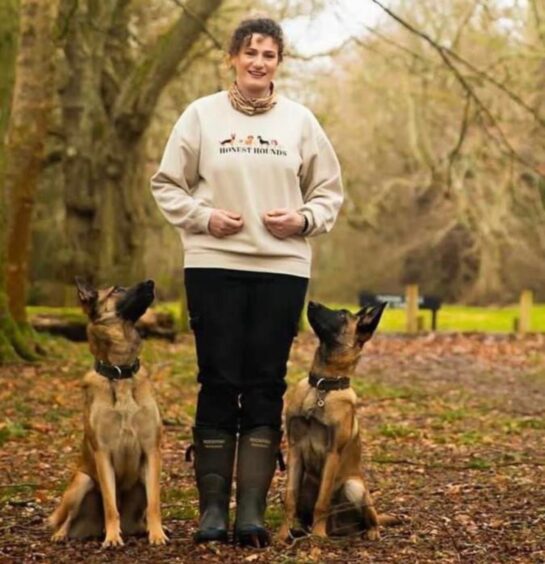
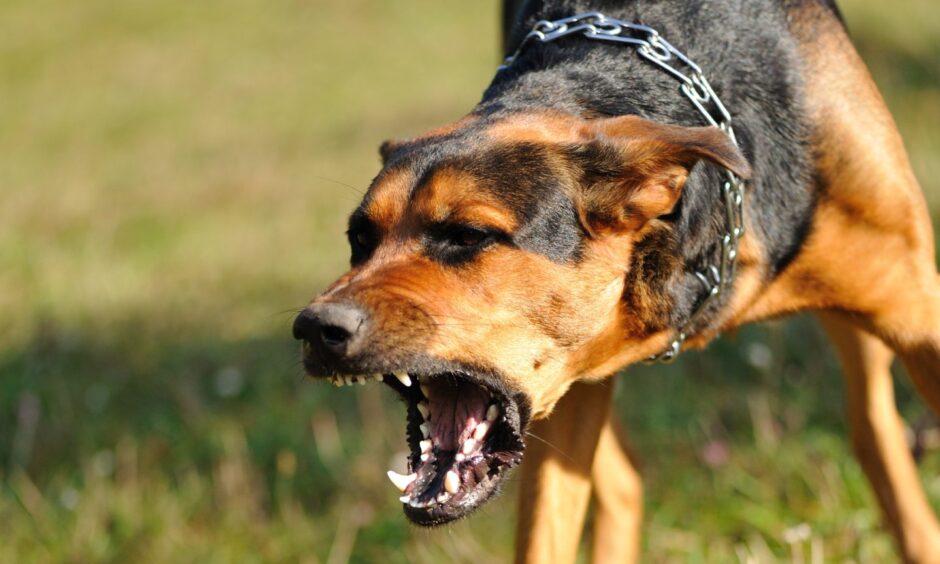




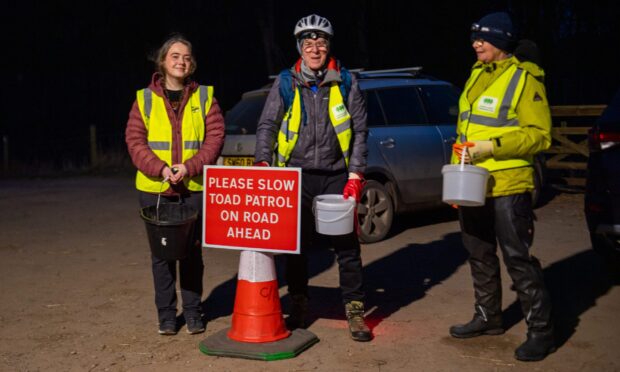





Conversation